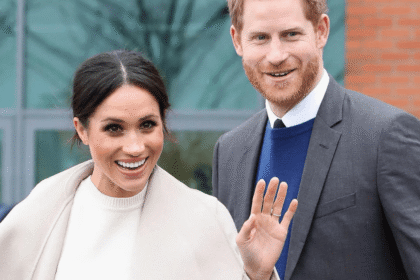Russian Foreign Minister Sergey Lavrov is expected to visit Pakistan next month, marking an important step in strengthening the relationship between the two countries. Lavrov’s visit is expected to focus on discussions that will further bilateral cooperation, particularly in the areas of energy, defense, trade, and regional stability.
- Historical Context of Pakistan-Russia Relations
- Energy Collaboration: Pakistan Stream Gas Pipeline Project
- Defense Cooperation: Enhancing Military Ties
- Trade and Economic Relations: Expanding Bilateral Trade
- Pakistan’s Role in Eurasian Economic Union (EAEU) and BRICS
- Regional Stability: Afghanistan and Counterterrorism Cooperation
- A New Chapter in Pakistan-Russia Relations
Pakistan and Russia have historically had a complex relationship, shaped by Cold War rivalries, global alliances, and differing regional strategies. However, in recent years, the two nations have sought to build stronger ties, especially as the geopolitical landscape shifts and both countries see new opportunities for collaboration. Lavrov’s upcoming visit underscores the ongoing diplomatic efforts between Islamabad and Moscow and signals that the relationship may be entering a new phase of deeper cooperation.
Historical Context of Pakistan-Russia Relations
To understand the significance of Lavrov’s visit, it is important to look at the historical context of Pakistan-Russia relations. During the Cold War, Pakistan was aligned with the United States and its Western allies, while the Soviet Union, Russia’s predecessor, maintained close ties with India. The adversarial relations between the U.S. and the Soviet Union often put Pakistan and Russia on opposing sides of various regional and global conflicts.
The Soviet invasion of Afghanistan in 1979 was one of the most significant events that further strained relations between the two countries. Pakistan, with U.S. support, played a key role in assisting Afghan resistance groups, known as the Mujahideen, who were fighting against the Soviet occupation. This conflict had long-lasting impacts on Pakistan-Russia relations, leaving deep distrust on both sides.
However, after the dissolution of the Soviet Union and the end of the Cold War, Pakistan and Russia began to gradually mend their ties. In the early 2000s, both countries saw the benefits of cooperation, particularly in the areas of defense and energy. The changing global order, with the rise of China and shifts in U.S. foreign policy, has also created new avenues for collaboration between Islamabad and Moscow.
Energy Collaboration: Pakistan Stream Gas Pipeline Project
One of the key areas of focus during Sergey Lavrov’s upcoming visit will be energy cooperation. Russia and Pakistan have been engaged in discussions over several major energy projects, including the Pakistan Stream Gas Pipeline, previously known as the North-South Gas Pipeline. This project is seen as a cornerstone of Russia-Pakistan cooperation in the energy sector.
The Pakistan Stream Gas Pipeline is expected to transport liquefied natural gas (LNG) from Karachi to Lahore, providing a critical infrastructure link for Pakistan’s growing energy needs. The pipeline is designed to improve Pakistan’s energy security by providing a reliable supply of natural gas, which is essential for power generation and industrial use.
Russia’s expertise in energy infrastructure development makes it a valuable partner for Pakistan, which is seeking to diversify its energy sources and reduce its reliance on imported fuel. The successful implementation of the Pakistan Stream Gas Pipeline project could pave the way for future energy collaborations between the two countries.
In addition to the gas pipeline, Lavrov’s visit is expected to include discussions on potential Russian investments in Pakistan’s energy sector, including the construction of oil refineries and the modernization of the Pakistan Steel Mills. These projects align with Pakistan’s broader economic goals of attracting foreign investment and developing its industrial base.
Defense Cooperation: Enhancing Military Ties
Another important aspect of the Pakistan-Russia relationship is defense cooperation. In recent years, the two countries have increased their military engagement through joint exercises and defense agreements. Lavrov’s visit will likely continue the momentum in this area, with discussions focused on enhancing military-to-military cooperation.
Pakistan and Russia have conducted several joint military exercises in recent years, including the “Druzhba” (Friendship) series of exercises, which have focused on counter-terrorism operations. These exercises reflect a growing level of trust between the two countries’ armed forces and signal a willingness to cooperate on regional security issues.
Additionally, Russia has provided military hardware to Pakistan, including attack helicopters and air defense systems. As Pakistan seeks to modernize its military capabilities, it is likely to look to Russia for further defense procurement. Lavrov’s visit could potentially result in new agreements on the sale of military equipment or the expansion of joint military training programs.
Trade and Economic Relations: Expanding Bilateral Trade
While defense and energy are key pillars of the Pakistan-Russia relationship, there is also a growing emphasis on trade and economic cooperation. Lavrov’s visit is expected to include discussions on increasing bilateral trade, which remains relatively low compared to the potential of both economies.
Russia is a major player in global markets, particularly in the fields of energy, agriculture, and manufacturing. Pakistan, on the other hand, is a growing economy with a large population and a strategic location that makes it an attractive market for Russian goods and services.
There have been efforts in recent years to increase trade between the two countries, including the establishment of joint business forums and trade delegations. Lavrov’s visit could result in new initiatives aimed at boosting bilateral trade, including the removal of trade barriers and the exploration of new markets for Pakistani exports in Russia.
In particular, Pakistan is interested in exporting agricultural products to Russia, including rice, fruits, and textiles. Russia, in turn, is looking to expand its exports of machinery, vehicles, and energy products to Pakistan. Lavrov’s visit could help to facilitate these exchanges and create new opportunities for both countries’ business communities.
Pakistan’s Role in Eurasian Economic Union (EAEU) and BRICS
Another key topic of discussion during Lavrov’s visit will be Pakistan’s potential involvement in regional economic organizations, such as the Eurasian Economic Union (EAEU) and BRICS (Brazil, Russia, India, China, South Africa). Both organizations represent important avenues for economic collaboration and regional integration.
The EAEU, led by Russia, is a regional economic bloc that aims to promote free trade and economic integration among its member states. Pakistan has expressed interest in joining the EAEU as an observer, which would allow it to benefit from enhanced trade relations with Russia and other member states.
Similarly, BRICS is an important platform for emerging economies to collaborate on global issues, including economic development, trade, and investment. Pakistan has shown interest in becoming more involved in BRICS, and Lavrov’s visit could provide an opportunity to discuss the possibility of deeper engagement with the organization.
Regional Stability: Afghanistan and Counterterrorism Cooperation
Lavrov’s visit to Pakistan also comes at a critical time for regional stability, particularly in the context of Afghanistan. The ongoing security situation in Afghanistan remains a major concern for both Pakistan and Russia, and it is likely that this issue will be high on the agenda during Lavrov’s meetings with Pakistani officials.
Russia has been actively involved in efforts to bring peace to Afghanistan, including hosting peace talks in Moscow. Pakistan, as a key regional player, has also played a significant role in facilitating dialogue between the Afghan government and the Taliban. Both countries share an interest in ensuring that Afghanistan does not become a breeding ground for terrorism and instability.
Counterterrorism cooperation is another important aspect of the Pakistan-Russia relationship. Both countries have faced threats from terrorist groups, and they have increased their collaboration on counterterrorism efforts in recent years. Lavrov’s visit could result in new agreements on intelligence sharing, joint counterterrorism operations, and other security-related initiatives.
A New Chapter in Pakistan-Russia Relations
Sergey Lavrov’s upcoming visit to Pakistan marks an important moment in the evolving relationship between the two countries. From energy cooperation to defense collaboration and regional stability, the visit is expected to cover a wide range of issues that are critical to both nations’ interests.
As Pakistan and Russia continue to navigate the complexities of the changing global order, their relationship is likely to grow in importance. Lavrov’s visit could pave the way for deeper cooperation in the years to come, strengthening the ties between Islamabad and Moscow and contributing to regional and global stability.
#RussiaPakistanRelations #SergeyLavrov #BRICS #EurasianEconomicUnion #PakistanStreamGasPipeline #Diplomacy #EnergyProjects #DefenseCooperation #TradeRelations #Pakistan







